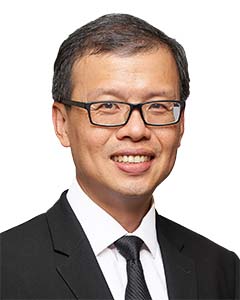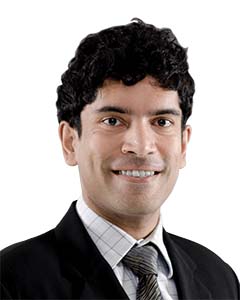Pursuing a claim in court or through arbitration is expensive. Would-be claimants, having already suffered a loss, must make the difficult commercial decision whether to risk further resources to pursue their claims. Third-party funding (TPF) is a solution in which a commercial funder agrees to pay some or all of a litigant’s fees and expenses in exchange for a share of the returns should the claim succeed. If the litigant fails, the funder will often bear the claimant’s costs and agreed adverse costs.

Disputes partner
Rajah & Tann
TPF improves access to justice. A financially weaker party with a strong claim will be able to engage in the potentially long drawn-out and costly actions needed to succeed in that claim. Companies reduce the costs and risks of litigation, which is important given the uncertain outcomes of claims. Law firms can take on work knowing their clients will be able to see the claim through. The funder stands to gain financially in the event of a good outcome. TPF is a risk-allocation tool which enables the claimant and funders to share the costs and returns of pursuing a claim.
Singapore allowed TPF in 2017 for international arbitrations and court and mediation proceedings related to them. Since then, more funders have established a presence and businesses have shown increasing interest in the additional options for financing litigation. In June 2021, the Ministry of Law announced that it will extend the TPF framework to domestic arbitrations and related court proceedings, certain proceedings in the Singapore International Commercial Court and mediation, which is related. The reasons given by the Ministry of Law for this extension to the TPF framework include the covid-19 pandemic situation and the possible resulting rise in disputes and risk of insolvency. Additional funding options will enable litigants to pursue meritorious claims in permitted proceedings.

Disputes partner
Rajah & Tann
In line with the rise of TPF in Singapore, bodies such as the Law Society of Singapore, the Singapore International Arbitration Centre and the Singapore Institute of Arbitrators have issued guidelines for its use. Litigants or legal practitioners considering TPF options for their international disputes in Singapore, should satisfy themselves on a number of matters. They should ensure that the qualifications and other requirements demanded of the funder to ensure qualification as a third-party funder comply with the Civil Law (Third-Party Funding) Regulations 2017. The terms of the TPF agreement should be scrutinised, particularly those relating to the scope of the funding, the funder’s liability for adverse costs orders, the extent of the funder’s involvement in decision-making, the dispute resolution procedures should the funder and the litigant disagree, and those governing the termination of the funding agreement.
Legal practitioners should comply with the relevant rules on ethics and professional responsibilities, including those in the Legal Profession Act, Cap.161, the Legal Profession (Professional Conduct) Rules 2015, the Legal Profession (Representation in Singapore International Commercial Court) Rules 2014 and the Legal Profession (Foreign Representation in Singapore International Commercial Court) Rules 2014. They should satisfy themselves as to the identity of the funder and whether any conflicts of interest exist or may arise between the litigant, the funder, the legal professional, other parties related to the dispute and the court or tribunal hearing the dispute. Legal professionals must balance the confidentiality of the TPF agreement against their obligations to disclose the existence of third-party funding to courts and tribunals, but must otherwise respect confidentiality and privilege for documents provided by the litigant to the funder.
This significant development is part of Singapore’s determination to become the international commercial dispute resolution hub in the region and beyond. The Singapore government has encouraged international dispute resolution by spearheading the negotiation and ratification of the Singapore Convention on Mediation, and enacting changes to the International Arbitration Act to enforce confidentiality obligations in arbitration. These efforts have paid off, as Singapore was this year ranked for the first time as the world’s top seat of arbitration alongside London.
Kelvin Poon and Vikram Nair are disputes partners at Rajah & Tann. Poon is the deputy head of the international arbitration practice and the head of the South Asia desk.
Rajah & Tann
9 Straits View #06-07, Marina One West Tower,
Singapore 018937
Contact details:
Tel: +65 6535 3600
Email:



























